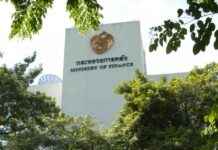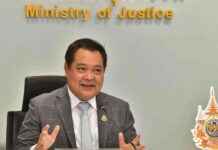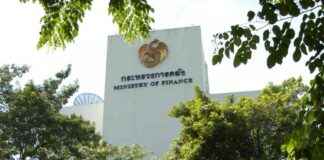Introducing Thailand’s New Prime Minister
The question of who will be the next Prime Minister of Thailand is on everyone’s minds. Some news sources suggest there are 5 potential candidates, while others claim there are 6 or even 7 according to the Constitution. Among the potential candidates are key figures from various political parties, including Patongtharan Chinnawatra, Chai Kaseem Nitisiriphannapatthipat, Anutin Charnvirakul, Prayut Wongsuwan, Jurin Laksanawisit, Pirapan Saleeratvipak, and Prayut Chan-o-cha.
Prayut Chan-o-cha, the current Prime Minister, holds both the title of Prime Minister and the leader of the Palang Pracharath Party. This dual role presents a unique situation where he could potentially return as the Prime Minister, as seen in similar events in the past. In 2549 BE, Surayud Chulanont stepped down as Prime Minister to make way for Prayut Chan-o-cha, demonstrating a historical pattern of such transitions.
The Political Landscape and Challenges Ahead
The current political climate in Thailand is complex, with pressing issues that need immediate attention. Economic challenges, including the people’s dissatisfaction with the government’s handling of economic issues, remain at the forefront. The formation of a new government is expected to maintain the existing political structure, with 11 parties and 344 seats in parliament. However, the selection of a new Prime Minister cannot be delayed, given the ongoing issues that require resolution.
One of the key players in the political arena is Thaksin Shinawatra, who is often referred to as the true power behind the scenes of the Pheu Thai Party. Speculation suggests that he may push for his daughter to become the Prime Minister, raising questions about the extent of his influence within the party. The uncertainty surrounding the future leadership of the country adds to the complexity of the situation.
The recent resignation of Sereepisuth Temeeyaves from the leadership of the Move Forward Party reflects the political turmoil in the country. Despite being the top-ranked party in the 2018 elections, the Move Forward Party failed to form a government, leading to internal conflicts within the party. The dynamics within political parties play a crucial role in determining the next Prime Minister, highlighting the need for strategic decision-making in the current political landscape.
Challenges and Opportunities for the New Administration
The transition to a new government poses both challenges and opportunities for Thailand. The prospect of a new Prime Minister from a different party raises questions about potential policy changes and the direction of the country. The power struggle between the Pheu Thai Party and the Palang Pracharath Party underscores the need for a cohesive and decisive leadership to address the pressing issues facing the nation.
The controversial policies of the current government, such as the digital wallet scheme and the proposed casino legislation, have sparked debates within the political landscape. The clash of ideologies between the Pheu Thai Party and the Move Forward Party on key issues like cannabis legalization further complicates the political scenario. The upcoming decisions on these policy matters will shape the future direction of the country under the new administration.
The role of Thaksin Shinawatra in influencing the political landscape cannot be underestimated, as his strategic maneuvers have shaped the course of Thai politics in the past. The potential for a power shift within the ruling party highlights the need for careful consideration of the implications of such changes. The decision-making process in selecting the new Prime Minister will be crucial in determining the stability and effectiveness of the upcoming government.
In conclusion, the appointment of a new Prime Minister in Thailand signifies a pivotal moment in the country’s political history. The challenges and opportunities that lie ahead require a strategic and decisive approach to governance. The dynamics within political parties, the influence of key figures, and the pressing economic issues will all play a significant role in shaping the future of Thailand under the new administration.




















